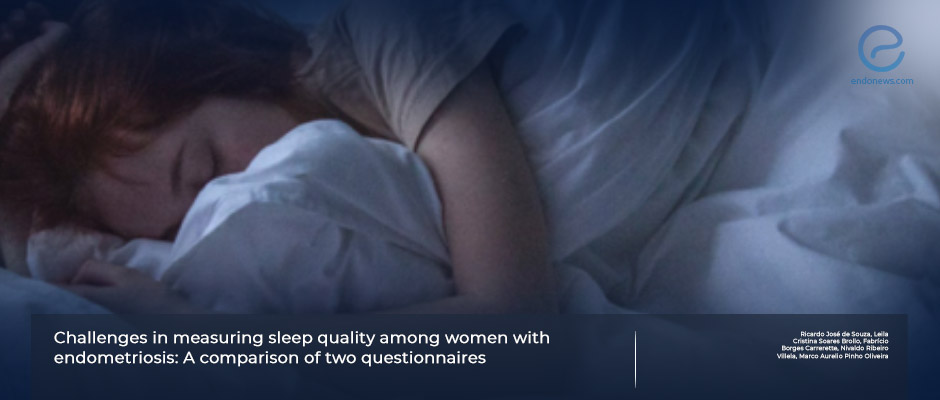Can We Reliably Measure Sleep Quality in Women With Endometriosis?
Mar 20, 2024
The cutoff value of sleep quality questionnaires are not adequate for women with deep infiltrating endometriosis, new study finds.
Key Points
Importance:
- Sleep affects mood and mental health and is crucial for overall well-being. Insomnia Severity Index (ISI) and the Pittsburgh Sleep Quality Index (PSQI) are standardized tools for evaluation.
- The issues due to the presence of separate categories in sleep questionnaires and their impact on research findings in women with endometriosis and sleep disturbances should be examined.
Highlights:
-
Both questionnaires are consistent and comparable, however, the cutoff values of the above questionnaires assessing sleep quality do not seem adequate for women with deep infiltrating endometriosis.
What’s done here:
- The answers of 161 women with deep infiltrating endometriosis to two sleep quality questionnaires were analyzed and then divided into two as poor sleepers and good sleepers.
Key results:
- Most women said their sleep quality was good.
- Around half of the women were in the good sleeper group according to one of the questionnaires and only 11% according to the other.
Limitations:
- These findings are specific to women with deep infiltrating endometriosis and may not apply to women with other types of endometriosis.
Lay Summary
The Insomnia Severity Index (ISI) and the Pittsburgh Sleep Quality Index (PSQI) lead to consistent scores comparable in women with deep infiltrating endometriosis, according to a new study published in the scientific journal Sleep Medicine. However, the cutoff values of the questionnaires seem not to be adequate for these women.
“. . . we can probably rely on both questionnaire scores”, the authors of the study said, “yet their recommended cutoff values should be approached with caution”.
The team of researchers led by Dr. Marco Aurelio Pinho Oliveira from the Department of Gynecology, Pedro Ernesto University Hospital, and Rio de Janeiro State University in Brazil used the two self-administered questionnaires to evaluate the sleep quality of women with deep infiltrating endometriosis.
A total of 161 women completed the questionnaires. They were asked to rate their average pelvic pain over the past four weeks on a numeric rating scale from 0 to 10. Patients with an ISI score of more than 14 or a PSQI of more than 5 were considered poor sleepers. Most participants (80 %), rated their subjective sleep quality as good.
However, when the researchers analyzed the results of the questionnaires, only 11% of participants were in the “good sleeper” group according to their PSQI scores. The ISI scores, on the other hand, classed a little over half (52%) of participants as good sleepers.
When the researchers compared the standardized scores, they found moderate to good reliability.
They concluded that the recommended cutoff leads to inconsistent results in women with deep infiltrating endometriosis. “The cutoff results should be interpreted carefully,” they wrote. “The questionnaire accuracy may vary depending on the clinical scenario and may be less effective in complex diseases”.
Research Source: https://pubmed.ncbi.nlm.nih.gov/38244462/
deep infiltrating endometriosis sleep quality queationnaire pelvic pain

